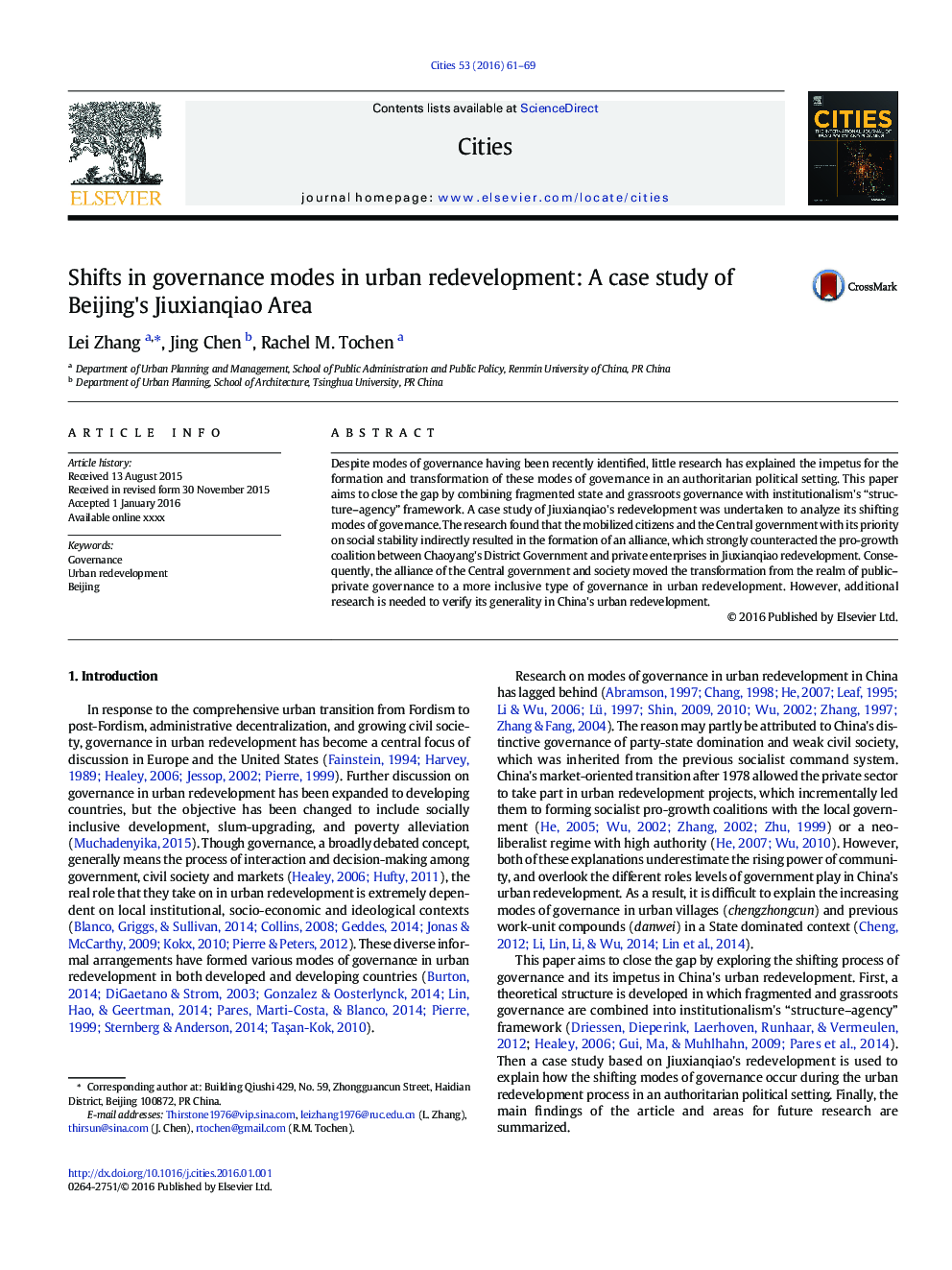| Article ID | Journal | Published Year | Pages | File Type |
|---|---|---|---|---|
| 7418187 | Cities | 2016 | 9 Pages |
Abstract
Despite modes of governance having been recently identified, little research has explained the impetus for the formation and transformation of these modes of governance in an authoritarian political setting. This paper aims to close the gap by combining fragmented state and grassroots governance with institutionalism's “structure-agency” framework. A case study of Jiuxianqiao's redevelopment was undertaken to analyze its shifting modes of governance. The research found that the mobilized citizens and the Central government with its priority on social stability indirectly resulted in the formation of an alliance, which strongly counteracted the pro-growth coalition between Chaoyang's District Government and private enterprises in Jiuxianqiao redevelopment. Consequently, the alliance of the Central government and society moved the transformation from the realm of public-private governance to a more inclusive type of governance in urban redevelopment. However, additional research is needed to verify its generality in China's urban redevelopment.
Keywords
Related Topics
Social Sciences and Humanities
Business, Management and Accounting
Tourism, Leisure and Hospitality Management
Authors
Lei Zhang, Jing Chen, Rachel M. Tochen,
